Our round-up of the best works of art to enter public collections recently
Nationalmuseum Sweden
A Study for a Hercules (1640s), Guercino
This red-chalk figure study of Hercules by the Italian Baroque artist Guercino belonged to the Swedish art collector and diplomat Count Carl Gustaf Tessin during the 18th century. Its acquisition, by the Nationalmuseum made possible by a bequest from the Wiros Fund, reunites the work with the main part of his drawings collection, which is held by the museum. Guercino completed A Study of Hercules in preparation for several paintings of the semi-god that he completed in the 1640s. The drawing reveals his mastery over the medium, as Guercino manipulates the warm hue of red-chalk to depict the subtle gradations of light over flesh, producing a convincing lifelike quality.

A Study for Hercules, in three-quarter-length (1640s), Giovanni Francesco Barbieri, called Guercino. © Photo: Heisser/Nationalmuseum
National Portrait Gallery, London
Self-portrait (fragment) (c. mid 1980s), Lucian Freud
The National Portrait Gallery has scooped up quite a gem in accepting a recently discovered self-portrait by Lucian Freud. The portrait was received from the estate of the artist in lieu of inheritance tax, joining the archive of Freud’s drawings, sketchbooks and letters, which were also given to the gallery under the scheme in 2015. This unfinished fragment of a self-portrait is thought to date from the mid 1980s as it resembles Freud’s Reflection (Self-Portrait) (1985). Although Freud created self-portraits throughout his career, this is one of just a few examples in UK public collections.

Self-Portrait (fragment) (c. mid-1980s), Lucian Freud. © Lucian Freud Archive
Pallant House Gallery, Chichester
Femme se peignant (c. 1887–90), Edgar Degas
The Pallant House Gallery was also a beneficiary of the Acceptance in Lieu scheme in April, being allocated a drawing by Edgar Degas. Femme se poignant (c. 1887–90) has never been exhibited before, as it has always belonged to private collectors – including the glamorous socialite Gladys, Duchess of Marlborough. This charcoal drawing, created on tracing paper with red chalk highlights, is an important addition to the gallery’s permanent collection of British and international modern art.
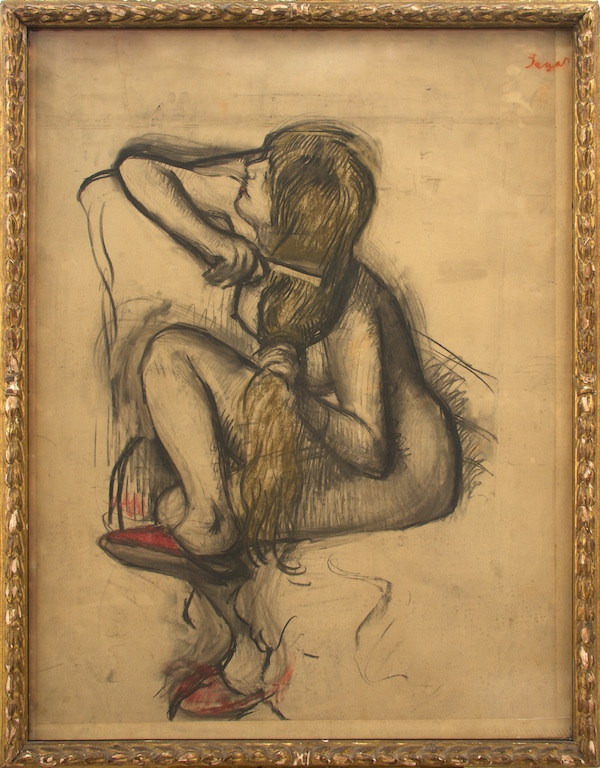
Femme se peignant (c. 1887-90), Edgar Degas. Accepted by HM Government in Lieu of Inheritance Tax from the estate of Stephen Brod and allocated to Pallant House Gallery 2016
Los Angeles County Museum
Five artworks and two collections from the 30th Annual Collectors Committee Weekend
The Los Angeles County Museum of Art (LACMA) celebrated its 30th Annual Collectors Committee Weekend in April. The event included a live auction where members voted on artworks to be added to the museum’s collection. This year’s haul was diverse. The Elevation of the Cross (1718), by Mexican painter Antonio de Torres, will enhance LACMA’s leading collection of Spanish colonial painting, while Oxen and Shepherds (18th century) by Soga Shōhaku is a rare addition of a large-scale Japanese work for a museum outside of Japan. Meanwhile, LACMA’s post-war acquisitions are represented by Idelle Weber’s Jump Rope (1967–68), Claes Oldenburg’s Typewriter Erasure (1970) and Siamak Filizadeh’s Underground (2014). Completing LACMA’s latest acquisitions are a collection of 100 videos from Electronic Arts Intermix and the Mike Kaplan Poster collection of 880 movie posters, mostly from 1930–50.
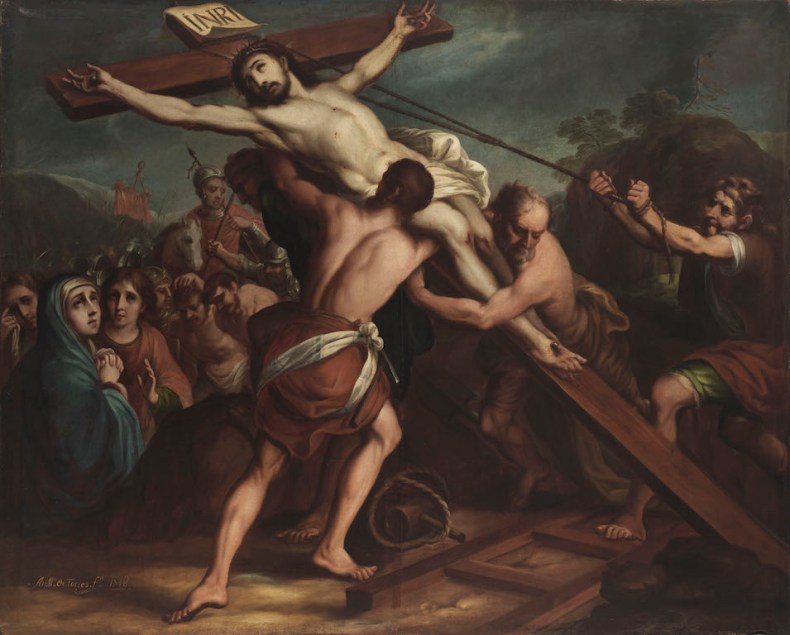
Raising of the Cross (Elevación de la cruz) (1718), Antonio de Torres. Courtesy of Los Angeles County Museum of Art
Gemeentemuseum Den Haag
Slide (1965), two drawings and a sketch, Lee Lozano
The Gemeentemuseum Den Haag aims to provide a new platform for overlooked artists, which makes their acquisition of Slide (1965), plus two drawings and a sketch by American artist Lee Lozano particularly fitting. No other museum in the Netherlands owns a Lozano, so this latest addition – which will complement the Gemeentemuseum’s minimal art collection – will bring the artist some deserved attention. Purchased with the help of the Dutch Rembrandt Association and the Mondrian fund, Slide comes from Lozano’s series of abstract ‘verb paintings’ produced between 1964 and 1967. Panels of paint collide and slide against each other, producing a single, sexually charged whole.

Slide (1965), Lee Lozano. © Gemeentemuseum Den Haag
National Gallery of Art, Washington DC
Lick and Lather (1993), Janine Antoni, and works by Sally Mann, Christina Ramberg and Roger Brown
The Collectors Committee of the National Gallery of Art has enriched the gallery’s contemporary collection with the acquisition of works by four artists. Lick and Lather by Janine Antoni (1993) consists of 14 busts of the artist – seven made from chocolate and seven made from soap – and questions the idealising tradition of classical sculpture. Two untitled photographs by Sally Mann will enter the gallery’s extensive photographic collection that spans from 1839 to the present, while three drawings by Christina Ramberg and two etchings by Roger Brown will expand the gallery’s collection of Chicago Imagist art.
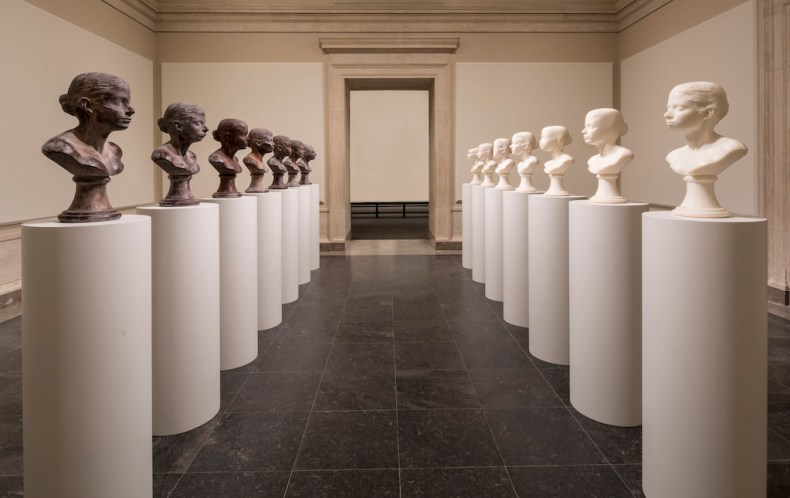
Lick and Lather (1993), Janine Antoni. © National Gallery of Art, Washington
ARoS, Aarhus
Valkyrie Rán (2016), Joana Vasconcelos
This 50m long installation, spanning eight levels as it winds its way through the building, will from part of the Portuguese artist Joana Vasconcelos’ solo exhibition opening at ARoS in October. Valkyrie Rán will then remain part of the museum’s permanent collection. The work was designed in response to the museum’s architecture and was acquired with the help of donations from Augustinus Fonden and the New Carlsberg Foundation.
EYE, Amsterdam
Ten Films from If We Ever Get to Heaven, William Kentridge
Following EYE’s exhibition ‘William Kentridge – If We Ever Get to Heaven’, the South African artist has donated 10 of his works to the museum. These new acquisitions from Kentridge’s series of films Drawings for Projections brought the artist to fame in the 1990s. The donation includes Felix in Exile (1994), Stereoscope (1999), Johannesburg 2nd Greatest City After Paris (1989), Tide Table (2003) and Other Faces (2011). The donation will support EYE’s aim to explore the interaction between film and other arts.
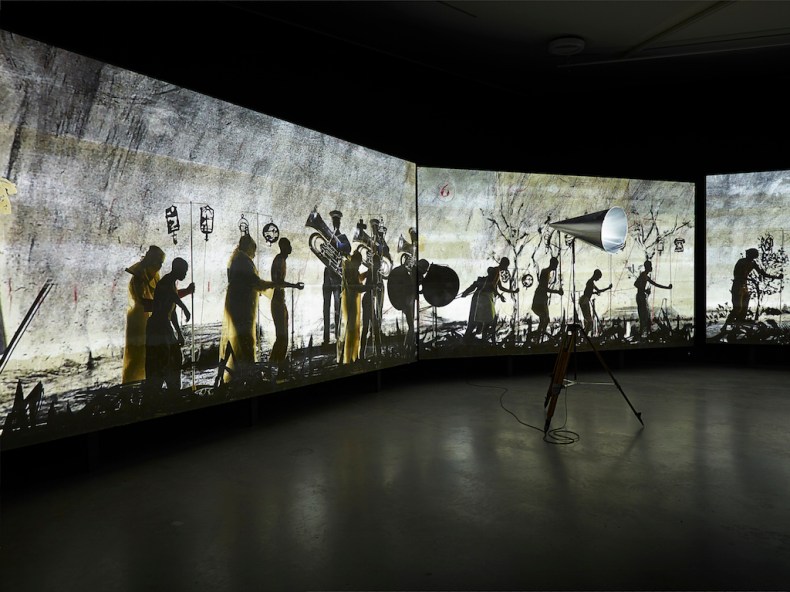
More Sweetly Play the Dance (2015), William Kentridge. © studiohanswilschut 46





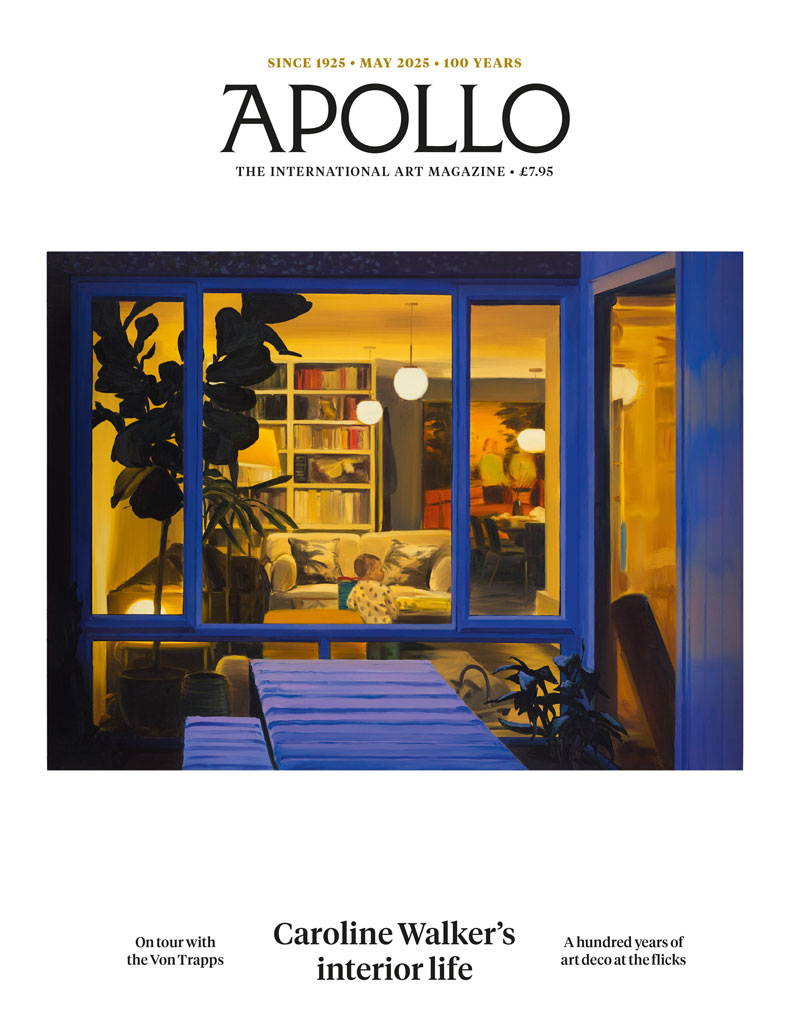








![Masterpiece [Re]discovery 2022. Photo: Ben Fisher Photography, courtesy of Masterpiece London](http://zephr.apollo-magazine.com/wp-content/uploads/2022/07/MPL2022_4263.jpg)
Suzanne Valadon’s shifting gaze